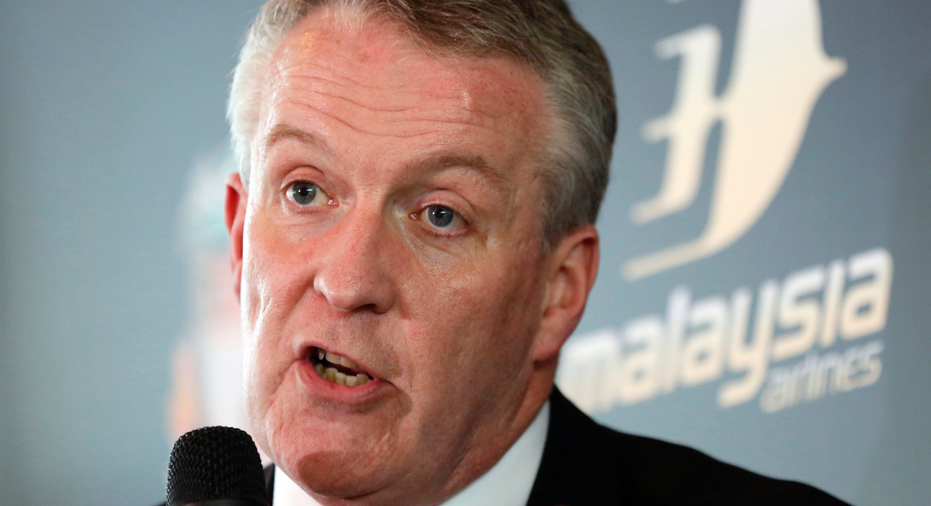Malaysia Airlines outgoing CEO says Ryanair needs his help

KUALA LUMPUR, Malaysia – Malaysia Airlines outgoing CEO Peter Bellew said Wednesday that he decided to return to Ryanair as a form of national service because the Irish budget airline needed his help.
He is the second CEO to quit the Malaysian flag carrier in less than two years.
Bellew, who was previously Ryanair's director of flight operations, joined Malaysia Airlines in 2015 as its chief operating officer under a major revamp to help the airline return to the black. He replaced Christoph Mueller as CEO in July 2016, after Mueller left abruptly citing personal reasons.
Ryanair announced Tuesday that Bellew would return Dec. 1 as its chief operations officer to tackle a pilot shortage that led to the cancellation of more than 20,000 flights over the winter season. Malaysia Airlines said in a statement that Bellew's departure was "unexpected" but stressed its turnaround plan remained on track.
Bellew said love for his country is pulling him back to Ireland.
"It is Ireland's greatest company. They need my help and there is a big challenge. It is a form of national service," he said in a statement.
Bellew said it has been a "tough job" to fix Malaysia Airlines but there has been no government interference in his work. He said success is now within grasp and that the government shouldn't change the Malaysia Airlines brand.
"Just another four-five percent in revenue monthly and it should move to profits. Not always easy to gain but in the second quarter, revenue increased seven percent. The product is improving visibly: new wide body planes, new lounges, new loyalty program, new website and better operations in Kuala Lumpur. Still some work needed on the food! Lots done, lots more to do," he said.
Malaysia Airlines was ailing from mismanagement that saddled it with at least $1.7 billion in losses since 2011. Then it suffered two flight disasters in 2014. Flight 370 vanished in March 2014 with 239 people on board and another flight carrying 298 people was shot down over Ukraine a few months later. The company was removed from Malaysia's stock exchange the same year, with the government pumping in 6 billion ringgit ($1.42 billion) under a radical restructuring.
The airline aims to return to profitability by 2018 under a $1.42 billion restructuring in 2014 that included axing 6,000 jobs and cutting all long-haul routes except to London.



















